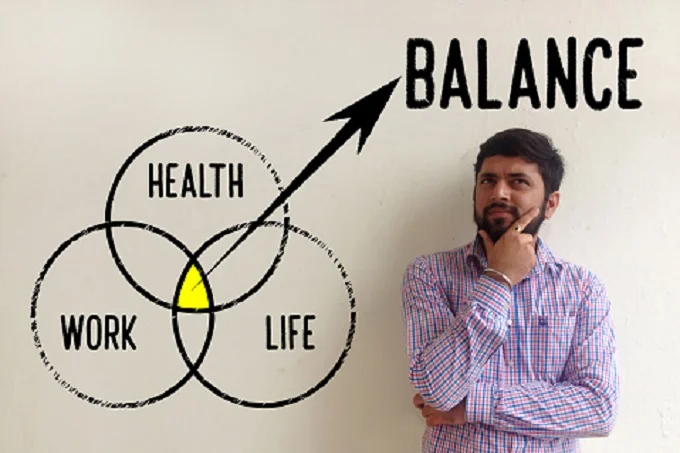With the advent of smart working and social networking platforms, the importance of physical presence in the workplace has significantly decreased, up to vanish for some professions. This has made the balance between private and professional life very current.
For those who are not used to homework, it becomes much more complicated to separate work from private, getting to mix both things throughout the day. What comes out of it? An imbalance and a growing feeling of stress. This is why the work-life balance principles are decisive for separating the profession from private life and living in harmony.
Work-life balance: what it is and what are the underlying factors
When we talk about work-life balance, we refer to a concept that has its foundations in a single root: the ability to balance in a balanced way:
- professional sphere: understood as career and ambition;
- private sphere: understood as a lifestyle including health, family, and free time.
The term “work-life balance” was first used in England in the late 1970s to explain the balance between work and private life.
But what are the factors underlying the Work-life balance? These are different, but, in particular, they stand out: technology and corporate welfare policies.
Obviously, no balance works for everyone, nor is there a balance between the two that is right or wrong. Therefore, the work-life balance is a strictly personal process that can change according to age, objectives, and the system of values, always in constant evolution.
The balance between private and professional depends on the employer
If it is true that in the past among the employees of a company, it was much easier to separate the two things: when you left the office, you physically and mentally “detached” from work. Now, with technology at your fingertips and always available, this is all more difficult.
Through smartphones, tablets, and the feeling of always being connected with everything and everyone, the bosses of companies tend to send e-mails and extra jobs to their employees even outside working hours, thus breaking that delicate balance between time to devote to family and work time.
The novelty is that there is a slow change in the world of work: more and more companies are willing to adopt a healthy work-life balance by promoting it in every way.
A right attitude towards the work-life balance starts first of all with the employer, who must not consider himself an authoritarian leader, but a reliable leader who makes a happy and dignified life possible.
To reduce stress, it is important to carry out a different company policy to encourage productivity without frustration. To encourage, for example:
- smart working;
- obtain more flexible working hours;
- have more facilities for employees.
The reason? A worker with a proper work-life balance will be a happy employee who will work harder and achieve their goals.
Positive work-life balance: how to do it?
How to understand if you are on the right path to achieve a balance between private and professional? Generally, we can speak of a positive work-life balance when the professional feels satisfied with his life as a whole and believes he is dedicating the right time to pursuing his professional goals without taking away precious time from his private life.
According to a study that measured the work-life balance in many countries worldwide, many people are average when balancing their time and vital energies between profession and leisure.
If, as we have seen previously, everything starts with the employer, it is also true that the employee is also responsible for a good balance between work and private life: he needs to know which factors belong to a good working life and which to a good one—privacy, and how these various factors are interdependent.
To balance work and private life, the relationship between the two spheres is decisive and the individual quality of both.
How to reach a balance: 5 basic rules
Be productive
Working productively doesn’t mean getting the most out of your private life but having an optimal amount of work.
Value work
In this case, the employer will have to reward their employee’s efforts, for example, in the form of praise, transparent career opportunities, fair wages, bonus payments, etc.
Socializing in the workplace
Many hours are spent in the office, and colleagues are often regarded as a “second family.” Socializing with the work team in a healthy and balanced way is essential to achieve a healthy psychophysical balance.
Poorly integrated into the workplace can have devastating consequences on both your professional and private life.
Having a hobby and practicing a sport
Disconnecting from work and having a passion for cultivating and carrying out moderate physical activity every day is essential for a correct work-life balance. Nothing better than releasing stress and tension with a 30-minute run in the open air.
Cultivating Friendships
Spending time with friends is considered one of the basic factors of work-life balance. Attending the peer group, spending a few hours in the company of people who have nothing to do with your professional life is a way to recharge your batteries and see your profession from other points of view.
